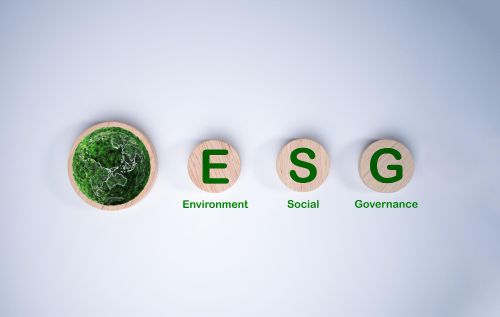Denmark Introduces World's First Agricultural Carbon Tax


Cut through the green tape
We don't push agendas. At Net Zero Compare, we cut through the hype and fear to deliver the straightforward facts you need for making informed decisions on green products and services. Whether motivated by compliance, customer demands, or a real passion for the environment, you’re welcome here. We provide reliable information—why you seek it is not our concern.
Introduction of the World’s First Agricultural Carbon Tax
Denmark has introduced the world’s first carbon tax on agriculture, specifically targeting emissions from livestock. This new measure, set to be implemented in 2030, will charge farmers 300 Danish kroner (€40) per ton of CO2 equivalent initially, rising to 750 kroner (€100) by 2035. This tax aims to address the significant methane emissions from cattle and pigs, which contribute substantially to greenhouse gas levels (The Fence Post) (WCBU) (Energy Live News).
The agricultural sector in Denmark is a major source of emissions, accounting for 22.4% of the country’s total carbon footprint, up from 15.6% a decade ago. The tax is expected to reduce carbon emissions by approximately 1.8 million tons in its first year, helping Denmark move closer to its goal of cutting 70% of total emissions by 2030 (The Fence Post).
Economically, the tax will also impact the price of meat and dairy products, potentially raising them by about 6% (The Copenhagen Post). Despite these challenges, there are incentives for farmers to adopt climate-efficient practices, with a 60% tax deduction available for those who meet specific criteria (Energy Live News). This approach aims to balance environmental goals with economic stability in the agricultural sector.
While this initiative has garnered support from environmental groups and some agricultural bodies, it has also faced criticism. Some farmers argue that it could hinder technological investment and disproportionately affect those already making efforts to reduce emissions. Conversely, proponents believe it sets a precedent that could inspire similar policies globally (The Fence Post) (WCBU) (euronews).
This tax aligns with Denmark’s broader climate goals and could serve as a model for integrating agricultural emissions into national and international carbon trading systems, potentially influencing EU-wide policies in the future (Energy Live News) (euronews).
Opinion: The Business Implications of Denmark's Agricultural Carbon Tax
Denmark's pioneering agricultural carbon tax is a bold move in the global fight against climate change, but its impact on businesses, particularly in the agricultural sector, cannot be overlooked.
Financial Strain on Farmers
The immediate effect of the carbon tax will be an increase in operational costs for farmers. The initial charge of 300 Danish kroner per ton of CO2 equivalent, rising to 750 kroner by 2035, translates to significant additional expenses for livestock farmers. Given that the average Danish cow produces six tons of CO2 equivalent per year, the tax could amount to around 4,500 kroner (€600) annually per cow by 2035 (The Fence Post) (WCBU). For businesses with large herds, these costs could be substantial, potentially squeezing profit margins and making it harder for smaller farms to remain viable.
To put this in perspective, the average return per dairy cow in Denmark is approximately 22,000 to 24,000 Danish kroner (€2,950 to €3,200) annually (Danish Dairy board - Danish Dairy Board) (Statistics Denmark). With the highest tax rate, the tax would represent about 18-20% of the average annual return per cow, significantly impacting profitability.
Market Price Adjustments
This increase in production costs is likely to be passed on to consumers, raising the prices of meat and dairy products. A projected 6% increase in these prices could affect consumer demand, potentially reducing sales volumes and impacting revenues for businesses throughout the supply chain, from farms to retailers (The Copenhagen Post). This price hike might also shift consumer preferences towards alternative protein sources, such as plant-based products, which could further disrupt traditional meat and dairy markets.
Impact on Competitive Advantage
While the tax incentivizes innovation and the adoption of more climate-efficient farming practices, it's essential to recognize that not all businesses will be equally prepared to adapt. Farmers who invest in technologies and practices that reduce emissions can benefit from significant tax deductions, potentially mitigating the financial burden of the tax (Energy Live News). However, those unable to make such investments may find themselves at a competitive disadvantage.
Economic Ripple Effects
The broader economic implications of the tax are also significant. As Denmark aims to align this tax with a potential EU-wide agricultural emissions trading system, businesses operating across Europe might face similar regulations in the future (Energy Live News). This could level the playing field, ensuring that Danish businesses are not at a competitive disadvantage internationally. Moreover, the revenue generated from the tax is expected to be reinvested into the agricultural sector, funding green initiatives and climate technology, which could benefit the industry in the long term (The Fence Post).
In conclusion, Denmark's agricultural carbon tax will necessitate significant adjustments and strategic planning. Business leaders must proactively address these changes to mitigate risks and ensure economic stability in a more environmentally conscious market.

More related content

California's Updated Clean Fuel Standards Set to Take Effect

European Supervisors Seek Public Input on ESG Stress Testing Guidel...

USC, Caltech Scientists Unveil Breakthrough Shipboard System to Sla...
